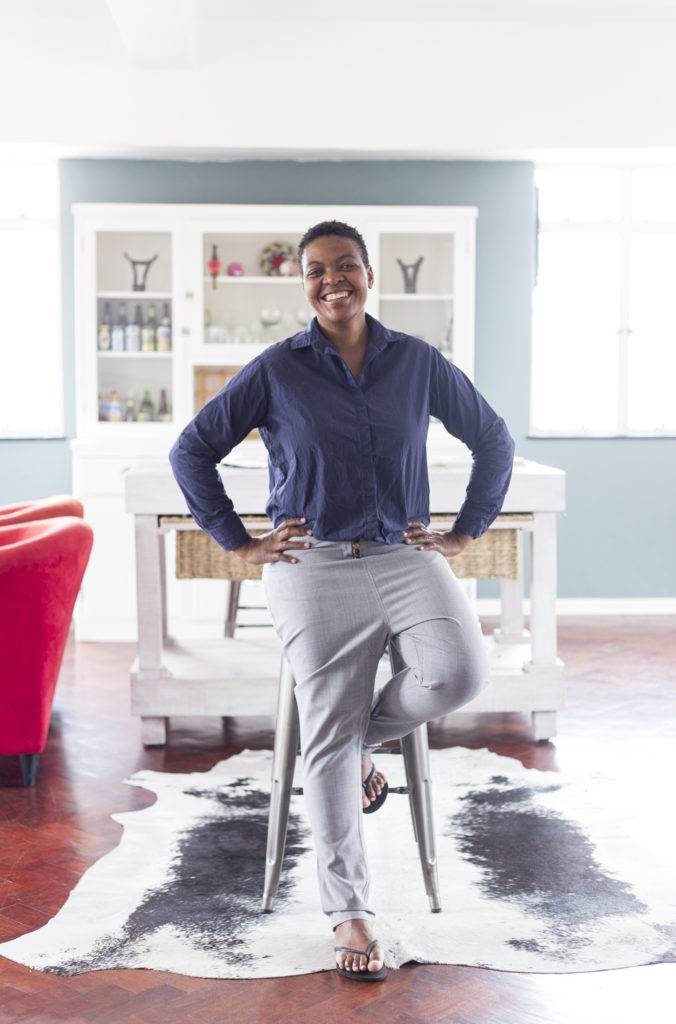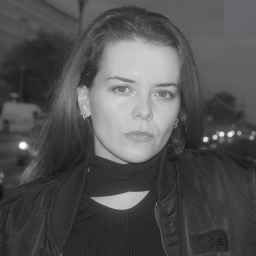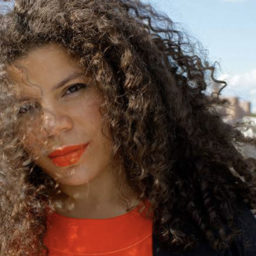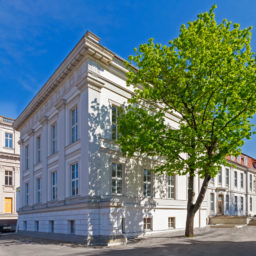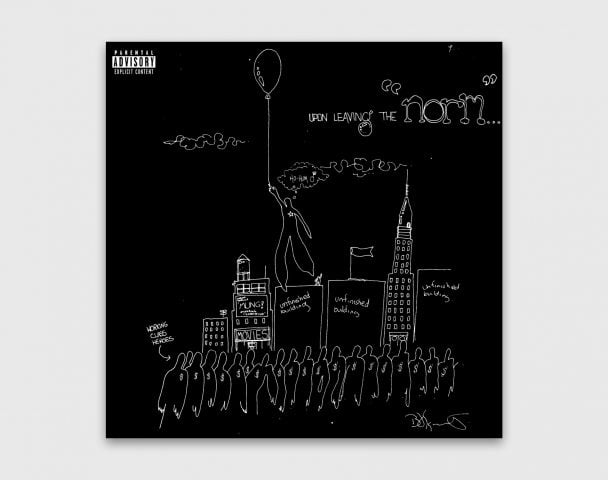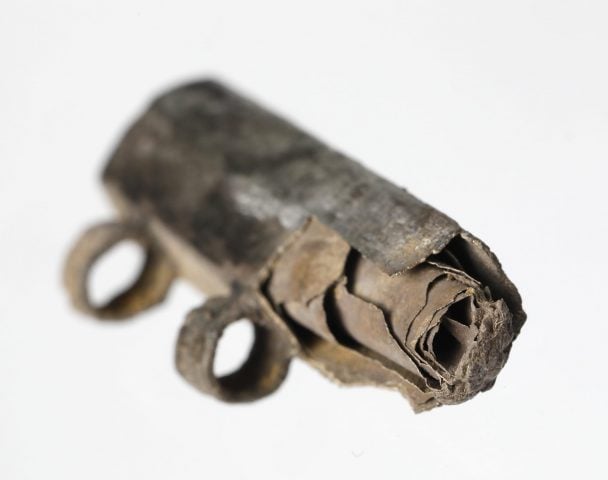The 10th Berlin Biennale opens on Saturday, marking 22 years since MoMA PS1 director and MoMA’s chief curator at large Klaus Biesenbach co-founded the event, in what was then a very different Berlin.
The South African curator Gabi Ngcobo, who has taken over the reins of the biannual exhibition in the German capital, is presenting a scaled-back version with 46 local and international artists. The collective DIS invited 120 participants to the ninth edition in 2016.
Titled “We Don’t Need Another Hero” after the hit song by Tina Turner, Ngcobo and her team, Nomaduma Rosa Masilela, Serubiri Moses, Thiago de Paula Souza, and Yvette Mutumba, have made a non-conformist exhibition that addresses “collective psychosis.” The show fills the historic Akademie der Kunst, Volksbühne Pavilion, and ZK/U, Center for Art and Urbanistics, as well as KW – Institute for Contemporary Art.
In the days leading up to the 10th Berlin Biennale, Ngcobo and the São Paulo-based curator Thiago de Paula Souza, told artnet News about how they decided to shape a biennial that follows Germany’s “Super Art Year” in 2017, which saw Documenta 14 in Kassel and Athens plus Skulptur Projekte Münster. They told us about the challenges curating a biennial in the heart of an increasingly divided and polarized Europe.
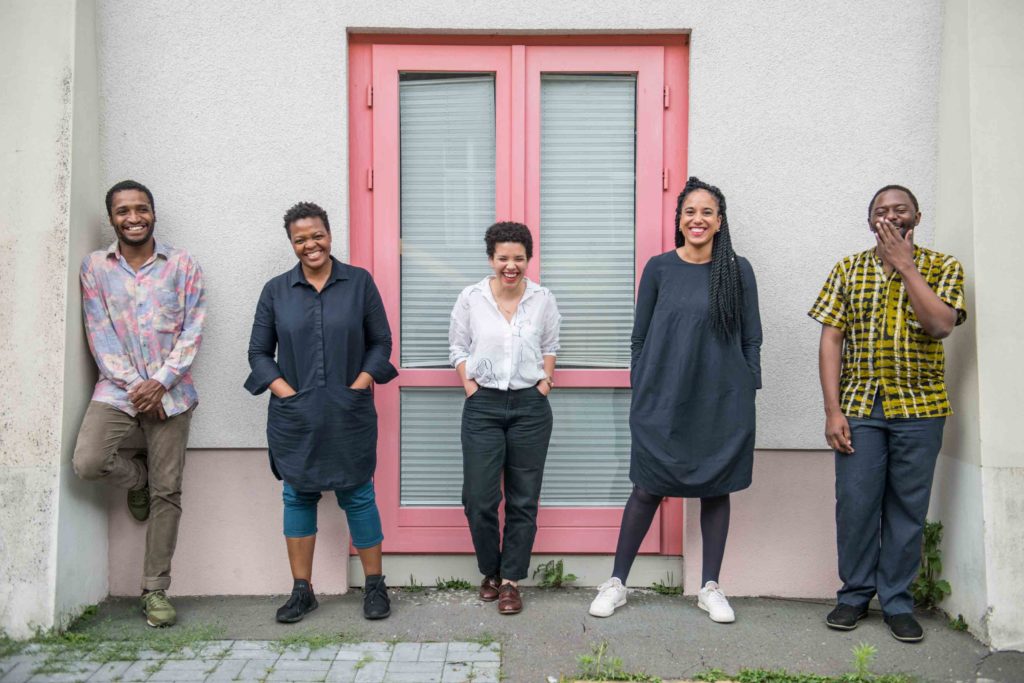
The Berlin Biennial curatorial team. From left to right: Thiago de Paula Souza, Gabi Ngcobo, Nomaduma Rosa Masilela, Yvette Mutumba, and Moses Serubiri. Photo by F. Anthea Schaap.
What is it like working within the various ongoing political tensions in Berlin and Germany right now?
Gabi Ngcobo: Through this exhibition, we’re in conversation with Berlin as a city in Europe and as in a city in the world. There are also a lot of events foregrounding urgent topics that are happening in Berlin right now and the time seems to be really ripe for post-colonial and decolonizing discourses.
I think we arrived in a Berlin that is grappling with these discussions in order to find its way forward. It’s good that these discussions are finally happening. It frees a space for us to inhabit a new or refreshed grammar, and to inhabit certain ideas that we’ve been thinking about, researching, and also living as everyday experience, which is more than research.
These post-colonial conditions are the everyday realities of places where we come from. It’s an everyday kind of negotiation of certain ghosts of the past that keep coming back to haunt the present. How do we exorcise these ghosts? So, we’re more interested in finding a new grammar to inhabit the exhibition. So, we will not say the biennial is post-colonial, because we are all post-colonial.
If this biennial is not about being post-colonial, what else is this biennial decidedly not about?
Thiago de Paula Souza: The most obvious thing that the biennial is not about is the idea of a savior. This is not our job. Of course, the reflections and meditations that we have been taking over the past almost two years might bring some fresh perspectives towards certain topics, but the Berlin Biennale is not fixing the mess.
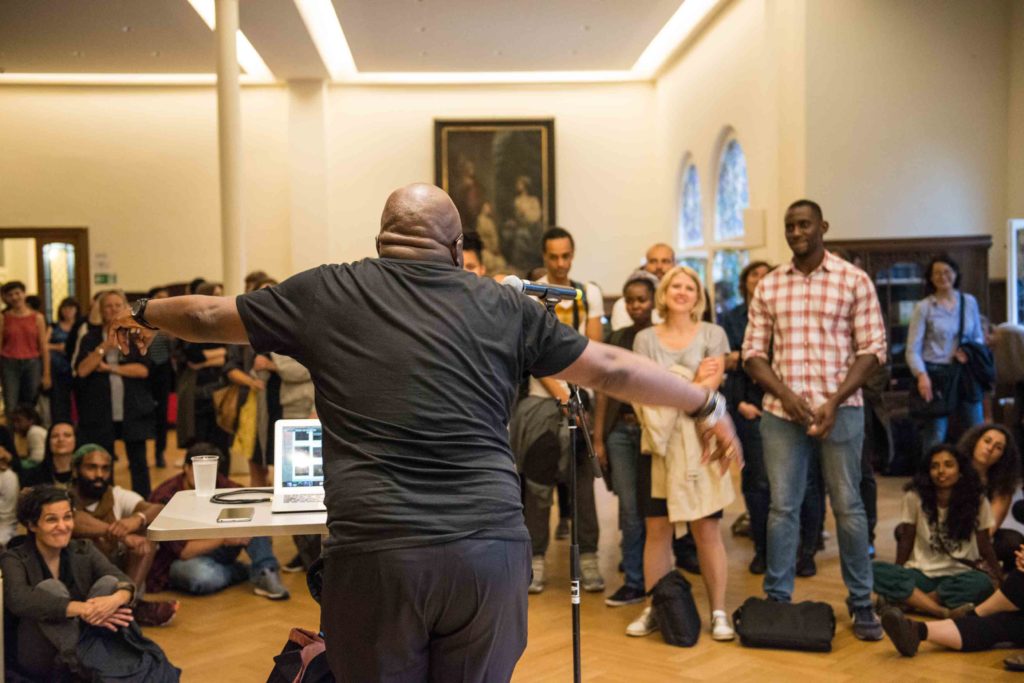
George Shire, Performing the Ontological Turn (2017), sonic performance and lecture part of I’m Not Who You Think I’m Not #1, 7.7.2017. Photo by F. Anthea Schaap.
The title of the biennial is: “We Don’t Need Another Hero.” It’s interesting to bring up this idea of a hero, considering that your biennial opens after the controversy and subsequent resignation of Chris Dercon at the Volksbühne in Berlin. It’s a very problematic narrative, to say that a curator is supposed to come and shake up an institution. If they don’t satisfy the critics and public, they can fall from grace.
Gabi Ngcobo: We won’t pretend that we don’t think about those things or that they don’t come into our discussions. At the same time, there are so many issues that remain unresolved. We all came to Berlin when controversies around Dercon were already happening. We met with different people from different cultural institutions and he is one of the people we met who was very interested to know what our plans are for the Berlin Biennale. Working at the Volksbühne Theatre Pavilion is a result of these discussions.
We do not want to shy away from spaces or issues that might be deemed problematic, but instead go there and see the friction and respond to the moment. However, it’s not because we gave a direct instruction to the artists that they should respond to the situation at Volkbühne. With Las Nietas de Nonó, who are occupying the glass pavilion outside the theater, we just let them know that these discussions were going on so they were aware.
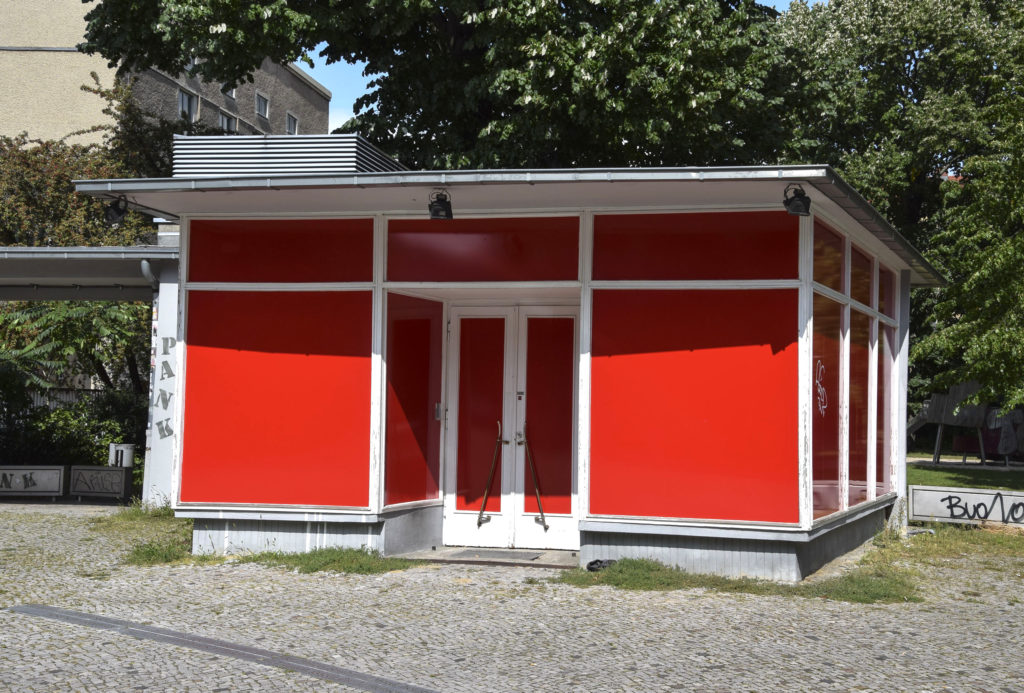
The duo Las Nietas de Nonó from Puerto Rico will create work in the Volksbühne Pavilion for the Berlin Biennale. Image courtesy of the Volksbühne Berlin.
What about the institutions you are working within, KW Institute for Contemporary Art and the various funding bodies behind the biennial? How did the situation with Adam Szymczyk at documenta 14 and Dercon at Volksbühne affect your way of working on the biennial?
Gabi Ngcobo: Considering that the Berlin Biennial is the second biggest event in Germany after documenta, we did experience certain tensions that the post-documenta 14 situation has activated. At the same time it is not productive to work under “an imminent” scrutiny. So, it was important for us to also maintain a distance from these tensions, because we hadn’t even started the work that we wanted to do. If we were to become focused on the unfortunate scrutiny leveled at documenta the artistic production may have become constrained too.
It was important for us still to be consciously dreaming about the things that we want to see happen in this Berlin Biennial to come to the questions of how to mold artistic projects so that they remain strong without appearing to be exaggerated.
The Berlin Biennial also follows after three major events in Europe last year, with documenta, but also the Venice Bienniale and Skulptur Projekte Münster. It was always our idea to scale down the exhibition here, and not have another super huge event.
How did you navigate this? Were there certain points where things came to a head?
Gabi Ngcobo: There are always going to be challenges, and these challenges are worked into the exhibition somehow. There were numerous negotiations with institutions regarding working in the spaces with the artistic proposals in mind, which was also interesting. Sometimes the thing that you thought would be difficult was easy and the things that you thought would be easy became nightmarish. But, of course, these negotiations and challenges are also a way to get to know institutions and how they function in this context.
The staff of the Berlin Biennial are very experienced in these types of negotiations. They are really tough negotiators. At certain other points it was critical for us to explain where we were conceptually coming from with certain requests and to influence negotiations. It was very interesting to encounter the figures who protect that heritage of Berlin and to learn how to engage with things by touching them without touching them.
What was that experience like, in regards to some of the venues?
Gabi Ngcobo: I think it’s been interesting in the Akademie der Künste in particular and institution itself which is even older than the building. It has a vast archive that we were interested in interacting with. We went in to look for certain material, not so that we can represent them necessarily but so that we could know what we were sitting within, and so that we understand a bit of what is contained in this institution.
There have been interesting conversations and negotiations from site to site that make you aware of the kinds of institutions that are shaped by Berlin’s history. KW comes out of the era post-Cold War. ZK/U – Center for Art and Urbanistics is only five years old, but the group that runs it has been around for some time and collaborated with the fifth Berlin Biennial. Somehow we thought that site would be less complex but it did bring about, really interesting challenges on how to navigate the architectural space in relation to artistic proposals. In the end, these challenges become contained as part of the experience people will confronted with when they visit.
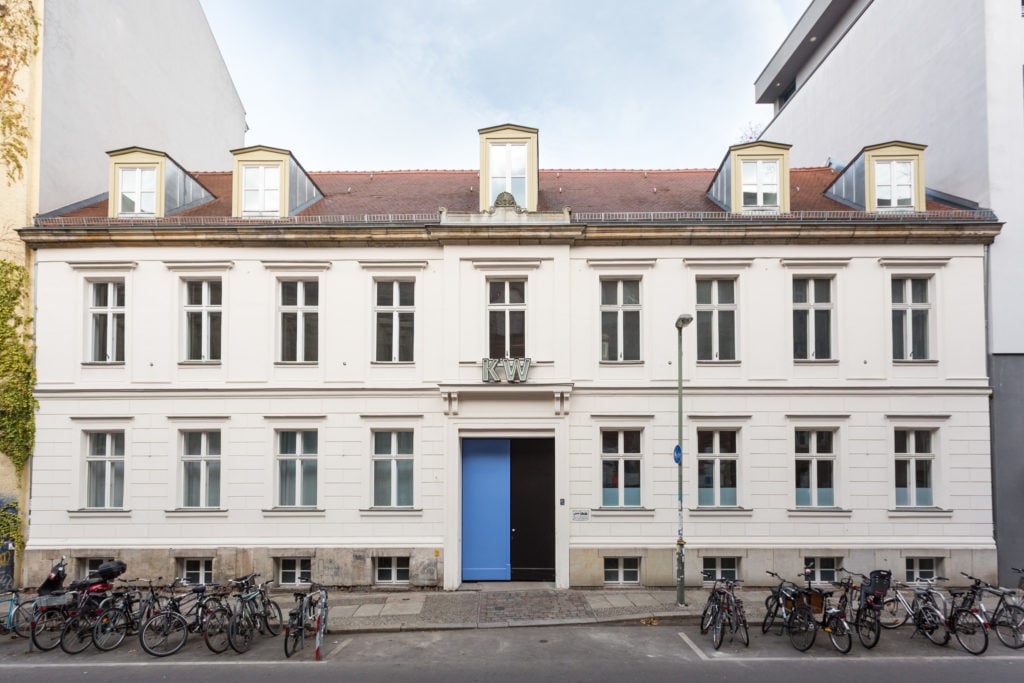
KW – Institute for Contemporary Art in Berlin. Photo Frank Sperling.
South as a State of Mind magazine serves as a delocalized site for the 10th Berlin Biennale public program. It’s really interesting that you are engaging with South, which is so connected to documenta 14.
Gabi Ngcobo: I wouldn’t say it was necessarily a choice we made, but rather it came from a discussions I had with South’s founding and editorial director Marina Fokidis. There was a shared understanding of South the magazine as emerging out of being part of documenta and the magazine needing to find its voice outside of that space again. The idea of thinking about maintenance was central, which is the title of the issue. This connected to our own refusals to be maintainers or saviors. It was as simple as that.
In a way it would become a vehicle from which they could also come out of that state of being after documenta. It’s also been interesting to witness the precarious state the magazine faced after the exhibition. We recognize the challenges of working precariously so we also wanted to support each other by collaborating closely in making one event of our public program, “I’m Not Who You Think I’m Not,” possible.
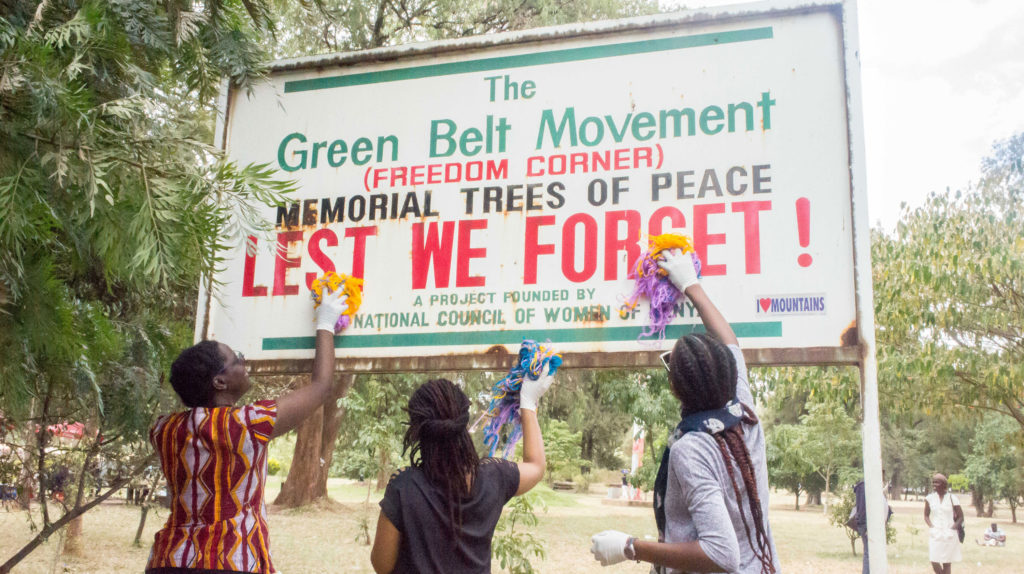
I’m Not Who You Think I’m Not #4. From left to right: Awuor Onyango, Nyakallo Maleke, Sanyu Kiyimba Kisaka.
The Berlin Biennial has been given many titles in addition to “We Don’t Need Another Hero”. It’s the “10th Berlin Biennial” and the first biennial organized by a curator from Africa. How do you deal with these expectations?
Thiago de Paula Souza: We don’t ignore all those easy titles, but we’re trying to be a little bit more elusive and taking the chance to address certain issues in a not really very straightforward way. You mentioned the 10th year anniversary of the Berlin Biennial. One of the exhibiting artists, Cinthia Marcelle, is showing a work at Kunstwerke – Centre for Contemporary Art that is based on very interesting research in an ongoing project called Legendaries. With it, she goes deep into the archives of institutions to try to reach people that have been important for those places and contributed to its history. We might not know some of them, or they might be people who had been taking care of the building, for example. She includes them alongside some of the more obvious characters.
The project allows us to think about the history of the institution, it´s connection with the city, the responsibility KW has towards the gentrification process in the neighborhood and at the same time it´s importance for the local scene. This kind of engagement with certain artists like Marcelle in this case, is a way of not ignoring those titles and celebrations, but at the same time, looking critically to the history of the institutions.
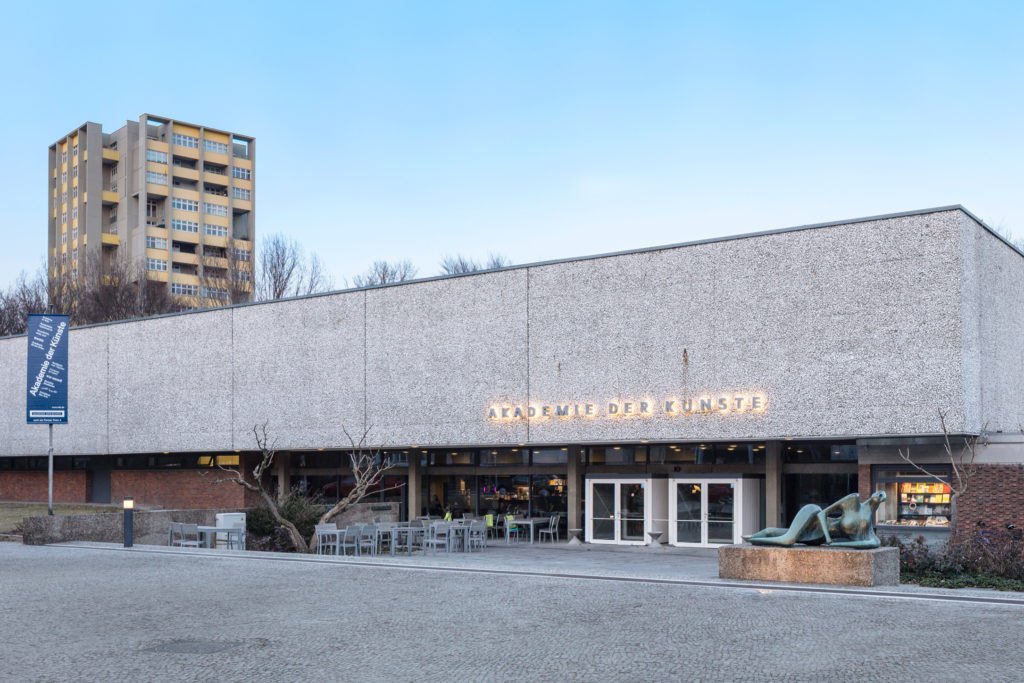
10th Berlin Biennale venue Akademie der Künste (Hanseatenweg). Photo by Timo Ohler.
At the first Riga Biennial, which opened last weekend, its curator Katerina Gregos was speaking about the “biennialization” of the world. There is a proliferation of biennials worldwide. Have you taken that into consideration as well?
Gabi Ngcobo: We are not interested in countering this idea of biennalization, perhaps because we want to have a say in it. In terms of this worldwide phenomenon of biennials, after the artist list was released, certain people reacted saying it contained “unknown” names. For us, this was a weird statement. We know them, they know themselves and they are known where ever they are from. Such a statement comes from putting oneself at the center and there is a question that is missing from that, that is lingering. In our case, this reaction is about Europe seeing itself as the center. It’s the fact that these names are not known in Europe, and so they are unknown, which is problematic.
The 10th Berlin Biennale for Contemporary Art will take place from June 9 through September 9, at various venues in Berlin.
